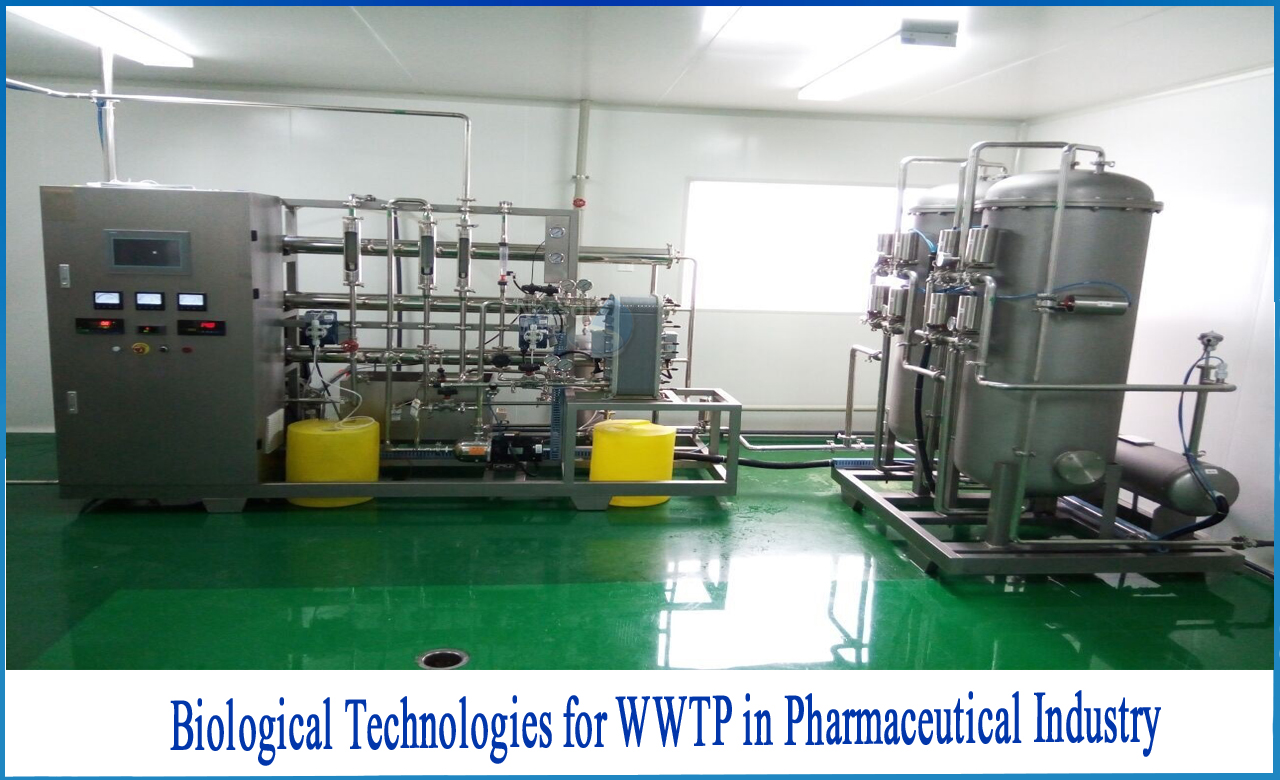What is Biological technologies for WWTP in Pharmaceutical industry?
Water is an essential commodity that is used in practically every stage of the pharmaceutical and intermediate chemical manufacturing process. The flow and content of pharmaceutical industry wastewater varies greatly depending on parameters such as production rate, the specific preparation being carried out, which operations are creating the waste water, and so on. Because of all of these variables, the pollution of the final effluent can be extremely varied over time.
Composition of Pharmaceutical Wastewater
In general, these wastewaters contain the following:
a) Organic stuff in abundance, with a major portion of it easily biodegradable (alcohol, acetone, etc.)
b) Organic molecules that degrade slowly and refractory chemicals (aromatic compounds, chlorinated hydrocarbons, etc.)
c) Compounds that inhibit and are harmful (antibiotics)
d) Surfactant-based soaps and detergents
Pharmaceutical compound manufacture often entails a number of steps, including the conversion of natural resources into pharmaceutical components via fermentation and extraction methods, as well as chemical synthesis. Following these preliminary procedures, the final product is formulated and packaged. Pharmaceutical by-products from various pharmaceutical manufacturing facilities' production lines eventually end up in the overall pharmaceutical wastewater.
Treatment of wastewater produced from pharmaceutical industry
In pharmaceutical manufacturing plants, many wastewater treatment processes are used, such as aerobic/anaerobic treatment, reverse osmosis, multimedia/carbon filtration, evaporation, and so on. To comply with Government laws or avoid the problem of water scarcity, water is treated, recycled, reused, or released into the environment using a variety of methods.
Biological wastewater treatment in Pharmaceutical industry
Biological wastewater treatment is a centuries-old biological technique. It consists of the following methods:
1. Activated Sludge Process: One of the oldest industrial applications of biotechnology is the activated sludge process, which involves aerobic treatment of industrial effluents in stirred tank bioreactors. The most versatile and extensively utilized biological treatment technique is activated sludge. Despite the fact that the method is suitable for all climates, the treatment capacity will be reduced in colder climates. Activated sludge techniques are frequently utilized after initial treatment and, in certain situations, after a final polishing phase as part of a complicated treatment system.
2. Moving bed biofilm reactor process (MBBR): The treatment is cost effective and requires minimum maintenance because MBBR processes self-maintain an optimal level of productive biofilm. MBBR systems, unlike activated sludge systems, do not require the sludge to be recycled. The capacity of an existing plant is increased by using MBBR as a retrofit.
3. Process of anaerobic digesting: Anaerobic digestion has a number of advantages, including the ability to handle large organic loading and sludge formation, as well as lower operating costs. Advanced oxidation processes and mechanical steam compression vacuum evaporators are potentially promising treatment alternatives.
What do we offer?
Netsol Water provides the best water and wastewater treatment in India, with multiple installations in the pharmaceutical business. We are aware of the regulations as well as the nature of the wastewater generated by the industry. As a result, the water treatment plants we create are tailored to each client's specific requirements. For specialty areas such as medicines and many more, you can rely on us for the best technologies and solutions!
For further assistance or product-purchase related query,
Call us on +91-9650608473 or write us at enquiry@netsolwater.com



